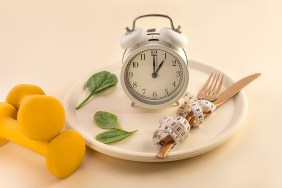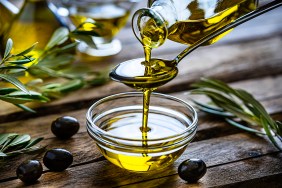You know that sugar, as in the processed white stuff and even the faux calorie-free versions, is bad for you. But, do you know how bad? I don’t mean to frighten you into healthier eating, but sugar affects every part of your body’s health, even your brain. Sugar increases levels of serotonin — the feel good hormone — while eating. And an overdose of sugar, over time, causes our brain to rely on serotonin-producing sugar rather than its natural ability to create the hormone on its own. In that way, becoming dependent on sugar has been compared to becoming dependent on cocaine.
Sugar also affects your pancreas, your bones; it provides food for cavity-causing bacteria. And, of course, it affects your waistline. Think you’ve got your intake under control? It may surprise you that it’s not only sweet-tasting foods that contain excess sugar. Just about every processed item at the grocery store from Ketchup to Doritos is full of it. What’s a girl to do? How to break the habit? I can tell you from personal experience that it helps to focus on including better food items in your diet, rather than trying to force out bad ones. It’s like a Jedi mind trick: The more you try to deny yourself anything, the more you want it. So, you focus on the good stuff. What good stuff? Obviously fruits and vegetables, but there are other sources of sweet flavor you may not know about. Read below for a list of sugar substitutes that allows you to indulge your sweet tooth without giving in to your baser urges.
Honey: This is easily the most accessible way to get some of that sweet flavor. Honey is naturally delicious, providing flavor above and beyond a sugary sensation. It’s popular to add to tea, but it can be used as a direct sugar substitute in cooking. Because it’s sweeter than sugar you should use three-fourths of a cup of honey and a tablespoon to every one cup of sugar.
Brown Rice Syrup: At 13 calories per teaspoon, this an alternative many people use for processed white and brown sugars. It’s used as a replacement for caramel and butterscotch. And bonus, it has vitamins and nutrients, which sugar does not.
Maple Syrup: Did you know you can use this delicious tree sap derivative as a sugar replacement in baking? I didn’t until I researched this story. As it’s sweeter than sugar (like honey), you’ll need three-fourths of a cup to every cup of sugar cited in your recipe.
Agave Nectar: Coffee and tea lovers will be happy to know that this more natural source of sugar (derived from the same plant as tequila) is a great hot beverage sweetener. But beware, though it’s less processed, it contains a fairly high calorie count: 60 per tablespoon. Users say it’s sweeter than sugar, so you end up using less than you would of the white stuff, making it an overall healthier alternative.
Applesauce: This sweet and healthier-than-sugar treat is another one that can take part in baking. Whether it’s brownies or cookies, you’ll be surprised that there’s no reduction in flavor when you switch out sugar for applesauce in the exact same quantities the recipe calls for.
Coconut Palm Sugar: This is one of the newer sugar alternatives on the market. It contains nutrients, as its derived from coconuts, and comes in a package as dried granules that are easy to measure for cooking and baking. It’s being recommended by none other than Dr. Oz as a legit source of sweetness.








